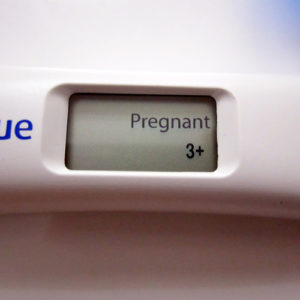Women who are anxious to become pregnant will use all kinds of methods to determine their most fertile time (ovulation date) — monitoring their cervical mucus, fertility charting, ovulation calendars, etc.
However, the most reliable ovulation predictor is an ovulation test. These tests work to detect the hormone that appears only during the ovulation period. Some women suffer from ovulation disorders, which means they hardly ever or never ovulate, but is a repeated negative ovulation test a sign that you’re infertile?
Before you let your mind go there, consider the possibility that you’re making some common errors when using the ovulation tests. The first thing we always recommend is that you check out the Zoom Baby ovulation test FAQ. If you are not taking the test correctly you may find that the results you are getting back are not accurate.
How Early Or Late In The Cycle Are You Testing?
Ovulation predictor kits are extremely reliable but can be costly. Most women don’t test themselves every day until the end of their period, or they get a positive result. Instead, they will sit down and figure out when they usually ovulate and test several days before it. The majority of ovulation calendars work by determining when your next menstruation date starts using the average cycle length and going back 14 days.
While the average cycle length is 28 days, it’s important to remember the keyword there — average. Your average could be more or less, meaning you could be testing too early or late in your ovulation cycle. You may want to take an ovulation test every day of the cycle for a month to determine when you ovulate — noting when you get a positive hit.
At What Time Of The Day Are You Testing?
On the package of all pregnancy tests, the manufacturer lists the best time to test, which is usually first thing in the morning. This is the time of day when the urine has the highest concentration of the hormone you want to detect. For pregnancy tests, this hormone is known as human chorionic gonadotrophin or hCG.
Ovulation tests are testing for luteinising hormone (LH). This hormone peaks around early afternoon, which means you should take it around noon time. However, the hormone stays detectable in the body for nearly 10 hours, which makes it a small window of opportunity to know whether or not you’re fertile.
Don’t let an ovulation test rule your sex life. If you want to have intercourse every day, do it. Remember, sperm will live within the body for nearly seven days.
Special Note: If a couple has infertility problems, they won’t be able to get pregnant.
Timing Is Everything: The LH Surge Window
Ever felt like you’re playing a frustrating game of hormonal hide-and-seek? You’re not alone. The LH surge that triggers ovulation can be sneakier than a cat burglar. It typically lasts 12-36 hours, but peaks for just a few hours. Miss that window, and you might think you’re not ovulating at all! Try testing twice daily – once around 11 am and again between 3-5 pm. This doubles your chances of catching that elusive surge. Remember, our bodies aren’t clockwork machines. Stress, diet, even that extra cup of coffee can throw off your cycle. So don’t panic if you don’t see that positive right away. Persistence and patience are your best allies in this baby-making adventure.
You May Have An Underlying Ovulation Issue
Have you been using ovulation predictor kits on a daily basis and none has come up positive? Are you using those kits at the right time? Are you using more than one method to determine your fertile time? Have you been trying to get pregnant for more than a year?
If you answered yes to any of the above questions, you could have an ovulation disorder. There are a plethora of reasons for an ovulation disorder including:
- Over-exercise
- Stress
- Diabetes
- Pituitary gland not generating enough luteinising hormone
- Pituitary gland generating excessive amount of prolactin
- Hypothalamus not releasing enough gonadotropin hormone
- Polycystic ovary syndrome, usually the result of too much testosterone and extreme bodyweight
- Drugs — antidepressants, oestrogens and progestins
- Ovaries not generating enough oestrogen
- Excessive weight loss/gain or obesity
Doctors will only claim a couple infertile if the couple under the age of 35 have been actively trying to get pregnant for a year or more. If you meet this description, you need to set up a time to talk to your doctor and see a reproductive endocrinologist. Women 40 and older should see their doctor if they’ve been trying to get pregnant for six months or longer.
There are many reasons why a woman doesn’t get pregnant and may not have anything to do with ovulation. Fertility testing is the only surefire way to determine the cause of your infertility.
Photo Credit: “Schwangerschaftstest” (CC BY-SA 2.0) by Torsten Mangner
This post first appeared in February 2018. It was last updated in July 2024.
Zoom Baby is a leading supplier of Pregnancy Tests and Ovulation Test Kits





